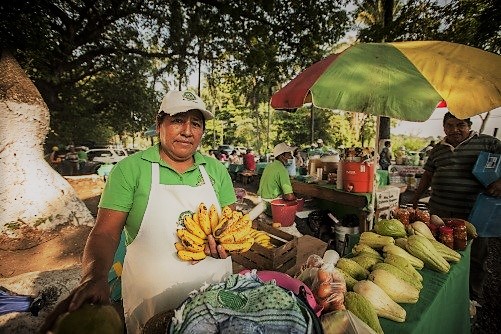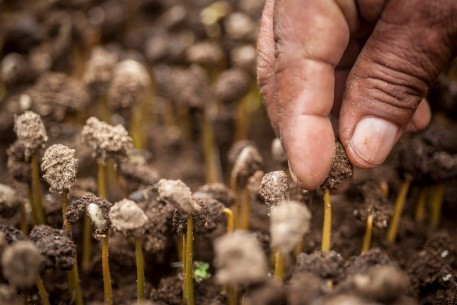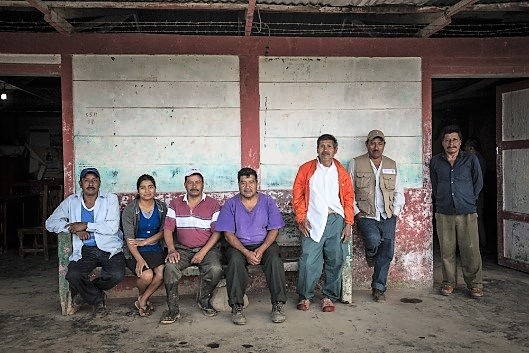"Action learning" and monitoring to increase capacities and knowledge
Alpujarras ejido farmers' market
IUCN @ Paul Aragón
La Azteca ejido producers
IUCN @ Paul Aragón
Members of La Azteca ejido
IUCN @ Paul Aragón
An "action learning" approach consisted of training and supporting communities to implement EbA measures.
- A socio-environmental vulnerability assessment of 2 ejidos (211 families) was carried out in a participatory manner to identify and prioritize EbA measures.
- Technical support is provided complementing families' traditional knowledge, to ensure that EbA measures contribute to food and water security.
- Exchanges and trainings are organized for producers, ejido authorities and municipalities on climate change, food security, sustainable forest management and soil conservation.
Furthermore, the solution focused on generating evidence on the benefits of EbA measures on water and food security:
- In collaboration with IUCN and the International Center for Tropical Agriculture (CIAT) household surveys were carried out to study the benefits of the EbA measures or food security. The joint methodology was also applied in five other countries.
- A methodology to understand the effectiveness of EbA on water security was developed and was applied in La Azteca and Alpujarras. The methods include: interviews, focus groups and environmental data collection in the field (e.g. water quality).
- CONAFOR implements the Forests and Climate Change Project in the area since 2012, aimed at reducing the climatic vulnerability of several ejidos through the protection and sustainable use of ejido forests. Due to its complementarity, this project creates enabling conditions for the adoption of EbA measures.
- For years, IUCN and its partners have advocated for the protection and sustainable use of forests in the Tacaná Volcano basins. Having previously worked with the La Azteca ejido under the Cahoacán Project, they know the local reality well.
- Maintaining technical support in the area for almost 15 years (since 2004) achieves continuous and joint learning among technical advisors, ejido members and institutions. In this way, problems can be internalized and the vulnerabilities that are identified are resolved as a team. Relying on the "learning by doing" approach fosters processes that are iterative and mutually supportive, and ultimately are conducive to broad, lasting and adaptive learning.



